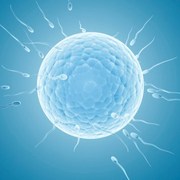 iStockphoto/Thinkstock
iStockphoto/Thinkstock
The Food and Drug Administration updated its consumer guide to birth control last week, deleting claims two kinds of contraceptives — the morning-after pill and the copper IUD — can prohibit an egg from implanting in the womb after fertilization, reported the Daily Beast.
Previously, it read the morning-after pill may “stop an egg from attaching (implanting to the uterus).” Now the “implanting” line is gone. Morning-after pills include Plan B and Ella and are taken after sex to prevent pregnancy.
The Daily Beast wrote that this is significant because a number of religious groups, pro-life activists, and politicians view contraceptives that prevent implantation as the equivalent of abortion, since the egg has already been fertilized.
It continued on saying that the changes follow a recent New York Times report questioning FDA claims the morning-after pill prohibits implantation.
While it may be nearly impossible to prove without a doubt that these pills don't stop fertilized eggs from attaching, studies overwhelmingly reveal they don't have that effect, the Times wrote.
Time Magazine said, in short, that the pills work by delaying ovulation — the release of eggs from the ovaries, which occurs before fertilization — to keep sperm from reaching the egg.
Emergency contraception may also work by thickening cervical mucus so sperm have trouble getting around. The pills block fertilization from the start.
The Daily Beast reported the Times said the FDA decided during the drug-approval process to say that the pill can prevent eggs from implanting despite "lack of scientific proof."
According to CBS News, Dr. Kristina Gemzell-Danielsson, an obstetrics and gynecology professor at the Karolinska Institute in Sweden, who participated in the FDA-approval process, told the Times that the implantation explanation was included because scientists thought it made the medication seem more effective.
Studies since 2002 have said Plan B cannot prevent implantation, and a 2005 FDA's Center for Drug Evaluation and Research memorandum recognized the pills’ main function was to prevent ovulation — but added that it couldn’t exclude the chance it may stop implantation "in a small percentage of women," wrote CBS News.
New York Times wrote that by 2007, scientific consensus was building that morning-after pills didn’t prohibit implantation.
Dr. Gemzell-Danielsson’s study — using fertilized eggs that would have been discarded from fertility clinics — found that adding Plan B in a dish didn’t prevent fertilized eggs from attaching to cells that line the uterus.
CBS News added that other studies in 2007, 2009 and 2010 in Australia and Chile showed that the morning-after pill was only effective in women who hadn’t ovulated.
The rate of pregnancy for women who had already ovulated and used Plan B was the same as those who hadn't used the pill at all.
Kirsten Moore, president of the Reproductive Health Technologies Project, said even if the FDA makes an official announcement that the morning-after pill cannot be scientifically proven to prohibit implantation, she believes the debate will remain.
Among many pro-lifers, she told the Daily Beast, if there’s any chance the pill could possibly hinder implantation, they’ll continue to see it as potentially abortive.
Sources:
Belluck, Pam. "Science at Issue in Debate on Morning-After Pill - NYTimes.com." The New York Times - Breaking News, World News & Multimedia. N.p., n.d. Web. 16 June 2012.
http://www.nytimes.com/2012/06/06/health/research/morning-after-pills-dont-block-implantation-science-suggests.html?_r=2
Pesta, Abigail. "FDA Quietly Changes Its Guide to How the Morning-After Pill Works - The Daily Beast." The Daily Beast. N.p., n.d. Web. 16 June 2012.
http://www.thedailybeast.com/articles/2012/06/15/fda-quietly-changes-its-guide-to-how-the-morning-after-pill-works.html?utm_medium=email&utm_source=newsletter&utm_campaign=exclusive_breaking_news&cid=newsletter%3Bemail%3Bexclusive_breaking_news&utm_term=Breaking%20News%20and%20Exclusives
"How The Morning-After Pill Works : NPR." NPR : National Public Radio : News & Analysis, World, US, Music & Arts : NPR. N.p., n.d. Web. 16 June 2012.
http://www.npr.org/2012/06/15/155110476/how-the-morning-after-pill-works
Castillo, Michael. "Investigation reveals morning-after pill may not prevent implantation - HealthPop - CBS News." Breaking News Headlines: Business, Entertainment & World News - CBS News. N.p., n.d. Web. 16 June 2012.
http://www.cbsnews.com/8301-504763_162-57448998-10391704/investigation-reveals-morning-after-pill-may-not-prevent-implantation
Sifferlin, Alexandra. "Morning-After Pill Akin to Abortion? The Science Says No | Healthland | TIME.com." Healthland | A healthy balance of the mind, body and spirit | TIME.com. N.p., n.d. Web. 16 June 2012.
http://healthland.time.com/2012/06/07/morning-after-pill-akin-to-abortion-the-science-says-no
Reviewed June 18, 2012
by Michele Blacksberg RN
Edited Jody Smith




Add a CommentComments
There are no comments yet. Be the first one and get the conversation started!